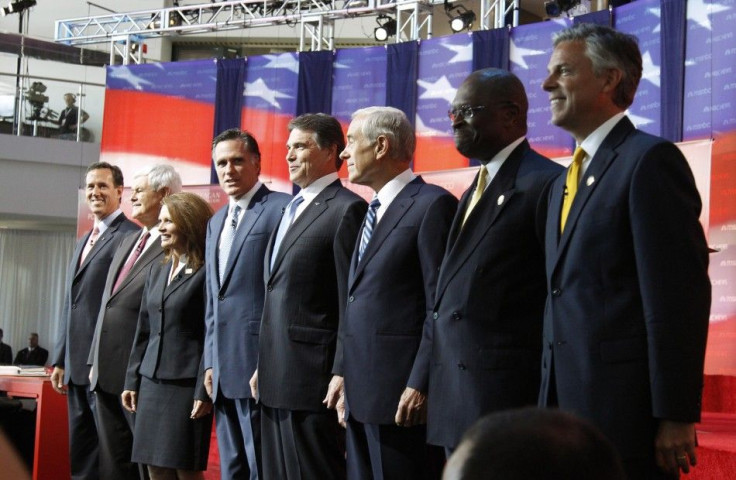2012 Campaign: Americans Already Want Election to End, Gallup Says

As voting for the upcoming 2012 presidential election kicks off with the rapidly approaching Iowa caucuses on Jan. 3, Americans are beginning to dread the months of campaigning, pandering and bickering ahead of them, according to a recent USA Today/Gallup Poll.
The poll, which asked respondents whether they couldn't wait for the upcoming presidential campaign to begin, couldn't wait for it to end, or had no opinion, found that a solid 70 percent of said they couldn't wait for the campaign to be over, compared to only 26 percent who said they were anticipating the event.
Gallup asked the same question to more than 1,000 Americans between Nov. 30 and Dec. 7. The respondents came from 12 swing states that are generally heavily targeted by national campaigns -- Florida, Michigan, Pennsylvania, Ohio, Iowa, Colorado, Nevada, New Hampshire, New Mexico, North Carolina, Wisconsin and Virginia. Residents of these states are expected to be bombarded with candidate advertisements, grass-roots outreach and political events as the November election approaches, Gallup reports. Pundits and campaigns typically use the primary results in New Hampshire and Iowa, traditionally the first states to cast a ballot, to frame the mood of the rest of the nation.
While campaigns may be targeting them, both Republican and Democratic respondents told Gallup they were already weary of the 2012 campaign. Independents are dreading the election cycle the most, with 75 percent of them saying they can't wait for it to be over, compared to 67 percent of Democrats and 66 percent of Republicans. Public sentiment did not change when analyzed by age or gender -- more than 60 percent of men and women are also looking forward to the end of the presidential election, while a majority of voters from every age bracket also concurred.
Older voters who have lived through several presidential elections seem to be the most apathetic, with 80 percent of respondents aged 65 or over telling the source they couldn't wait for the 2012 election to end.
Americans' dispirited view of the upcoming election may be unsurprising, considering the increasingly unfavorable opinion many have expressed toward elected officials this year. On Monday, Gallup reported the U.S. Congress' approval fell to 11 percent, the lowest single rating in the organization's 37-year history of asking the question. Some media organizations have found an even lower approval rating; an October CBS/New York Times poll recorded the legislative body's approval rating at a dismal 9 percent.
We're looking at the politics of backlash, Lawrence Jacobs of the Center for the Study of Politics and Governance at the University of Minnesota, told USA Today, explaining Americans' dissatisfaction with the 2012 candidates.
Average Citizen Feel System Not Addressing Typical Person's Concerns
Jacobs said Americans view the country's political process as one that is out of touch with the concerns of the average citizen, adding that the process has been further paralyzed by the staggering economy and a general sentiment of fear of the future.
It's as if the country is on the Titanic and it's going down, and you've got Congress and the presidential field playing violins, Jacobs said.
As a result, a December poll from The Hill found 67 percent of respondents believe the salary for members of the U.S. Congress should be lowered. In an even more extreme example of the nation's frustration with Congress, earlier this month Gallup also reported that 76 percent of Americans said most members of Congress do not deserve to be reelected.
However, while most Americans are already weary of the election ahead, they still recognize that its results will have a major impact on the state of the nation. Fifty-seven percent of those who responded to the most recent survey said they have already given quite a lot of thought to who they will vote for in 2012 and 72 percent said they are still somewhat enthusiastic about actually casting their ballot.
© Copyright IBTimes 2024. All rights reserved.











